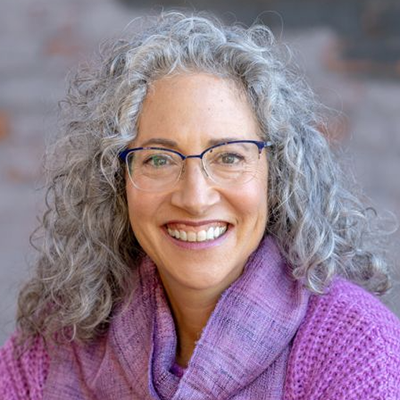Top Bee Pollen Benefits for Health
Dubbed “a life-giving dust” by the ancient Egyptians, bee pollen has been used as a medicine and health food for centuries—and for good reason. Nutritionally dense, it’s packed with protein, antioxidants, essential amino acids, enzymes, essential fatty acids, vitamins, minerals, and polyphenols.
Top bee pollen benefits include reducing inflammation, boosting liver health, lowering heart disease risk, and aiding digestion. Research has shown that bee pollen can protect against metabolic syndrome, a common group of health issues that increases the risk of heart disease and diabetes. According to studies, bee pollen may also help prevent obesity, combat liver disorders, and improve bone metabolism.
Want to improve your hormone health? Studies suggest bee pollen may benefit men by boosting testosterone production and may ease menopausal symptoms, like hot flashes, in women.
Explore the top bee pollen benefits—from boosting immunity to enhancing energy levels—and learn how to safely enjoy its advantages.
What Is Bee Pollen?
Bee pollen is one of several substances made by bees. In contrast to royal jelly and beeswax, which are secreted, bee pollen is gathered.
Also known as ambrosia, bee pollen is the main source of food and protein for honeybee workers and larvae, the developing baby bees. It’s made from flower pollen gathered by forager bees, who moisten it with saliva and nectar, form the pollen into small granules, and carry it back to the hive in pollen baskets located on their hind legs.
Once gathered, forager bees deposit the bee pollen in the chambers of the beehive comb. Next, worker bees use their heads to pack the bee pollen into the cells of the hive. During the process, the bee pollen is mixed with the bees’ digestive enzymes, along with honey and organic compounds. Finally, it undergoes a storage period during which the bee pollen undergoes a fermentation process to become bee bread.
What Are the Health Benefits of Bee Pollen?
Bee pollen has numerous therapeutic uses and health benefits. It has demonstrated antifungal, antimicrobial, antiviral, anti-inflammatory, liver-protecting, anticancer, immune-stimulating, and pain-relieving properties.
A nutritional powerhouse, bee pollen may improve your health and energy levels. It’s high in cell-protecting antioxidants and supports a strong immune system. Bee pollen may also boost liver health, reduce inflammation, ease menopausal symptoms, lower risk of heart disease, promote healing, prevent infection, improve nutrient absorption, and reduce stress.
The functional food is also easy to add to your wellness routine. You can take it as a supplement or add the granules to yogurt, granola, salads, smoothies, or baked goods.
While bee pollen is generally safe for most people, some should avoid it or consult a healthcare professional before taking it. People allergic to pollen and/or bees should not take bee pollen, as it may cause an allergic reaction, including hives, shortness of breath, and anaphylaxis. Women who are pregnant or breastfeeding and children should also avoid taking bee pollen.
If you are considering taking bee pollen, talk with your doctor first—bee pollen can interact with certain medications, like blood thinners.
Nutritionally Dense
Along with other superfoods like spirulina, soybeans, and dark leafy greens, bee pollen is very nutritious. Although the exact nutrient composition varies depending on the time of year and types of flowers used to make it, a review of 100 studies found that, on average, bee pollen is 54% carbohydrate, 21% protein, 5% fat, including omega-3 fatty acids, 9% fiber, and 3% ash. It also contains eight essential amino acids, four conditionally essential amino acids, and five nonessential amino acids, including arginine, leucine, and methionine.
Rich in vitamins and minerals, bee pollen contains the B-complex vitamins, vitamins C, K, E, and D, and pro-vitamin A. Its mineral content includes potassium, calcium, magnesium, iron, selenium, and zinc.
Bee pollen also contains fiber. A high-fiber diet has been found to reduce the risk of many health conditions, including cardiovascular disease, constipation, and colon cancer.
High in Antioxidants
One reason bee pollen is great for you is that it’s rich in antioxidants, which help prevent inflammation. Richer in antioxidants than honey, bee pollen contains various antioxidants, including flavonoids, carotenoids, quercetin, glutathione, and phenolic acids.
Antioxidants like vitamin C, coenzyme Q10, lycopene, selenium, and beta-carotene are compounds that inhibit the oxidation process, protecting cells from harmful molecules called free radicals. Free radical damage and the oxidative stress it causes play a role in the development of many diseases, including cancer, heart disease, and stroke.
Supports a Strong Immune System
Bee pollen may also help support healthy immunity. A robust immune system can help you stay healthy in many ways, from fending off flu and cold viruses to reducing the frequency and intensity of allergic reactions.
Bee pollen supports immune health in several ways. First, it’s rich in nutrients needed for proper growth and function of immune cells, including vitamin C, vitamin D, zinc, selenium, and protein.
Like ginseng, ashwagandha, and cordyceps mushrooms, bee pollen is an adaptogen. This means it can help strengthen the immune system against infection by increasing resistance to harmful chemical, biological, and physical influences.
Bee pollen also acts as both an antimicrobial and antiviral agent. It is rich in compounds that can help fight infectious bacteria and other dangerous microbes, such as Staphylococcus, E-coli, Helicobacter pylori, and Candida.
In addition, bee pollen may also have anticancer properties. Studies suggest it stimulates apoptosis, a type of cell death, and may reduce tumor growth.
Animal and test tube studies have demonstrated bee pollen’s beneficial impact on the immune system. Test tube studies suggest compounds in bee pollen promote immune organ growth, white blood cell activity, and the body’s ability to fight bacteria and viruses. One study showed that feeding young chickens bee pollen increased their level of immunoglobulin M (IgM), an antibody produced in response to new infections, and enhanced overall immunity.
Reduces Inflammation
Bee pollen also reduces inflammation. This is important because inflammation plays a key role in both acute conditions like cellulitis (inflammation of the skin caused by infection) and chronic conditions like heart disease, autoimmune diseases, and arthritis.
Bee pollen may help reduce inflammation by inhibiting the activity of enzymes responsible for creating compounds like prostaglandin and leukotrienes, which cause acute and chronic inflammation in the body. It contains flavones that can suppress COX-2, a type of enzyme that increases production of substances that cause pain and inflammation. A concentrated bee pollen extract eliminated 75% of swelling in one animal study.
Bee pollen also appears to reduce allergic reactions. Allergic reactions occur when the immune system makes antibodies after misidentifying a harmless allergen as harmful, leading to inflammation. Bee pollen may reduce the severity of allergic reactions by protecting mast cells, a type of white blood cell, and inhibiting the release of histamine, a chemical that causes allergic symptoms.
Promotes Healing and Infection Prevention
With hundreds of active compounds, bee pollen is widely used in cosmetics for its ability to strengthen and seal capillaries, balance skin oils, and reduce oxidative stress and hyperpigmentation. Various types of bee pollen are used for everything from acne therapy to wrinkle reduction. Research is underway to determine whether bee pollen is an effective treatment for dermatitis.
Increasingly, apitherapy—a type of alternative medicine that uses bee products—is used for burn wound treatment. Bee pollen promotes and speeds up healing and reduces discomfort. One animal study showed that bee pollen ointment as a topical burn treatment reduced healing time and prevented infection.
Want to improve your oral health and promote healing? Look for a toothpaste containing bee pollen or propolis, which can help suppress germs and reduce inflammation in the mouth, teeth, and gums. Bee pollen is also added to dandruff shampoos to prevent fungal development.
Boosts Liver Health
Bee pollen may also improve the health of your liver, your body’s second-largest organ responsible for filtering blood, regulating blood sugar, and removing toxins.
While human studies are needed to fully demonstrate the benefits, animal, and test-tube studies suggest bee pollen may help treat non-alcoholic fatty liver disease (NAFLD), liver damage caused by toxic chemicals, and hepatitis. One test-tube study found that bee pollen extracts protected liver cells from oxidative damage and reduced the accumulation of fats in the initial stage of fatty liver disease.
An animal study showed that bee pollen helped to treat hepatitis. Another animal study suggested that bee pollen might be used to treat liver injuries induced by carbon tetrachloride toxicity.
Eases Menopausal Symptoms
If you are going through menopause and struggling with symptoms like hot flashes, night sweats, mood swings, painful sexual intercourse, and trouble sleeping, bee pollen may help.
In a study of 46 people with breast cancer receiving antihormonal therapy, those who consumed pollen together with honey experienced a reduction in menopausal symptoms. Another study of 55 postmenopausal women with menopausal symptoms showed that taking an herbal supplement made from bee products, including bee pollen and royal jelly, improved menopausal symptoms and lowered heart disease risk factors like high total cholesterol and LDL “bad” cholesterol.
Animal studies have shown that bee pollen can help regulate ovarian functions and increase the female hormones progesterone and estradiol.
Active compounds in bee pollen may also improve cognition, which could potentially help women experiencing brain fog. Animal studies suggest bee pollen may improve cognitive impairment and help treat cognitive dysfunction.
Bee pollen may also improve bone health, a concern for many menopausal women. Animal studies have shown that bee pollen extract may help build bone. In addition, bee pollen contains vitamin D, an important micronutrient for bone health.
Hormonal and Reproductive Benefits for Men
Bee pollen also may benefit men’s hormonal and reproductive health. A review of bee products, including bee pollen, concluded that they “showed positive effects on the steroidogenic, spermatogenic, oxidative stress, inflammatory, and apoptotic parameters, thereby making them a promising possible preventive and therapeutic treatment of male sub/infertility.” Animal studies have shown that bee pollen increases testosterone and sperm count, motility, and viability.
Due to their anti-inflammatory and anti-androgen properties, bee pollen extracts have been shown to help reduce prostate diseases. In one study of 90 patients with chronic prostatitis syndrome, more than half of those who received pollen extracts for six months had a favorable response, and 42% improved significantly. Bee pollen is likely effective because it’s rich in quercetin, which may help combat chronic prostatitis by reducing oxidative stress and inflammation.
Boosts Heart Health
Bee pollen may help protect the heart for several reasons. As an antioxidant, it may help slow or stop the development of atherosclerosis, a hardening of the arteries resulting from inflammation combined with high lipid levels, oxidative stress, and blood clotting. Bee pollen appears to favorably impact cholesterol levels, lowering LDL “bad” and total cholesterol and increasing HDL “good” cholesterol. It may also reduce damage to the heart muscle, which can lead to cardiovascular disease and heart attacks.
A study of 157 patients with unhealthy blood lipids showed that taking bee pollen together with honey resulted in a decrease of total cholesterol by over 18% and LDL cholesterol by almost 24%.
One animal study showed bee pollen decreased total cholesterol and LDL “bad” cholesterol. It also significantly limited the development of arteriosclerosis at lower doses and prevented it at higher doses.
Helps Manage Blood Sugar
Phenols and flavonoids in bee pollen may help reduce blood glucose levels. A study of 30 people with diabetes found that those who took bee pollen for four weeks had significantly reduced HbA1c, a measure of blood sugar levels over time, compared to controls.
In an animal study of rats with diabetes, three doses of bee pollen significantly decreased blood glucose levels. Another animal study found that a combination of bee pollen and bee propolis may be a natural way to help prevent unhealthy blood fats and liver damage caused by diabetes.
Improves Nutrient Absorption
Bee pollen may also improve how well your body digests and absorbs nutrients from food, though human studies are needed to confirm this. One animal study demonstrated that feeding rats bee pollen caused favorable changes in the small intestine that could result in better gut function and absorption of nutrients.
Another animal study found that bee pollen and propolis improved the digestive utilization of iron, especially during recovery from anemia, and had a positive effect on the metabolism of other minerals, including calcium, magnesium, and phosphorus.
Bee pollen also contains probiotics from the lactobacillus family. Many studies suggest probiotics enhance gut health and have beneficial effects in humans, including supporting weight management and reducing anxiety and depression.
Helps Manage Stress
The high levels of antioxidants in bee pollen can help lower overall oxidative stress in the body, which is essential for managing stress levels. Bee pollen’s anti-inflammatory properties may also help reduce stress-related inflammation and chronic inflammation, which is linked to contributing to stress.
As an adaptogen, bee pollen may help your body naturally deal with day-to-day stress. In addition, the nutrients in bee pollen, like B vitamins, may improve energy levels and elevate your mood, which can help reduce stress and anxiety.
Is Bee Pollen Good for You?
While more human research is needed to establish the health benefits of bee pollen, it’s clear that bee pollen is good for you. It’s rich in many nutrients, including protein, vitamins, minerals, polyphenols, and healthy fats. However, children, women who are pregnant or breastfeeding, and people allergic to pollen or bees should not consume it.
Bee pollen is available in a variety of forms. You can consume it as granules eaten alone or added to yogurt, salads, or smoothies. It’s also available as a supplement and comes combined with other bee products like honey, propolis, and royal jelly.
Remember, it’s always a good idea to check with your doctor before taking any health or hormone supplement. And when choosing a bee pollen supplement, seek a trusted brand that is third-party tested to ensure it contains the listed ingredients.
References:
- Algethami JS, El-Wahed AAA, Elashal MH, Ahmed HR, Elshafiey EH, Omar EM, Naggar YA, Algethami AF, Shou Q, Alsharif SM, Xu B, Shehata AA, Guo Z, Khalifa SAM, Wang K, El-Seedi HR. Bee Pollen: Clinical Trials and Patent Applications. Nutrients. 2022 Jul 12;14(14):2858.
- De Oliveira M.C., Da Silva D.M., Loch F.C., Martins P.C., Dias D.M.B., Simon G.A. Effect of bee pollen on the immunity and tibia characteristics in broilers. Braz. J. Poult. Sci. 2013;15:323–327.
- El-Bialy B.E., Abdeen E.E., El-Borai N.B., El-Diasty E.M. Experimental studies on some immunotoxicological aspects of aflatoxins containing diet and protective effect of bee pollen dietary supplement. Pak. J. Biol. Sci. 2016;19:26–35.
- Ishikawa Y, Tokura T, Nakano N, Hara M, Niyonsaba F, Ushio H, Yamamoto Y, Tadokoro T, Okumura K, Ogawa H. Inhibitory effect of honeybee-collected pollen on mast cell degranulation in vivo and in vitro. J Med Food. 2008 Mar;11(1):14-20.
- Khalifa SAM, Elashal MH, Yosri N, Du M, Musharraf SG, Nahar L, Sarker SD, Guo Z, Cao W, Zou X, Abd El-Wahed AA, Xiao J, Omar HA, Hegazy MF, El-Seedi HR. Bee Pollen: Current Status and Therapeutic Potential. Nutrients. 2021 May 31;13(6):1876.
- Kim SB, Jo YH, Liu Q, Ahn JH, Hong IP, Han SM, Hwang BY, Lee MK. Optimization of Extraction Condition of Bee Pollen Using Response Surface Methodology: Correlation between Anti-Melanogenesis, Antioxidant Activity, and Phenolic Content. Molecules. 2015 Nov 2;20(11):19764-74.
- Komosinska-Vassev K, Olczyk P, Kaźmierczak J, Mencner L, Olczyk K. Bee pollen: chemical composition and therapeutic application. Evid Based Complement Alternat Med. 2015;2015:297425.
- Münstedt K., Voss B., Kullmer U., Schneider U., Hübner J. Bee pollen and honey for the alleviation of hot flushes and other menopausal symptoms in breast cancer patients. Mol. Clin. Oncol. 2015;3:869–874.
- Mohamed AE, El-Magd MA, El-Said KS, El-Sharnouby M, Tousson EM, Salama AF. Potential therapeutic effect of thymoquinone and/or bee pollen on fluvastatin-induced hepatitis in rats. Sci Rep. 2021 Aug 3;11(1):15688.
- Oyarzún JE, Andia ME, Uribe S, Núñez Pizarro P, Núñez G, Montenegro G, Bridi R. Honeybee Pollen Extracts Reduce Oxidative Stress and Steatosis in Hepatic Cells. Molecules. 2020 Dec 22;26(1):6.
- Rzepecka-Stojko A, Stojko J, Jasik K, Buszman E. Anti-Atherogenic Activity of Polyphenol-Rich Extract from Bee Pollen. Nutrients. 2017 Dec 18;9(12):1369.
- Suleiman JB, Bakar ABA, Mohamed M. Review on Bee Products as Potential Protective and Therapeutic Agents in Male Reproductive Impairment. Molecules. 2021; 26(11):3421.
- Yıldız O, Can Z, Saral O, Yuluğ E, Oztürk F, Aliyazıcıoğlu R, Canpolat S, Kolaylı S. Hepatoprotective potential of chestnut bee pollen on carbon tetrachloride-induced hepatic damages in rats. Evid Based Complement Alternat Med. 2013;2013:461478.
DISCLAIMER:This Wellness Hub does not intend to provide diagnosis...
















































































 Table of Contents
Table of Contents















